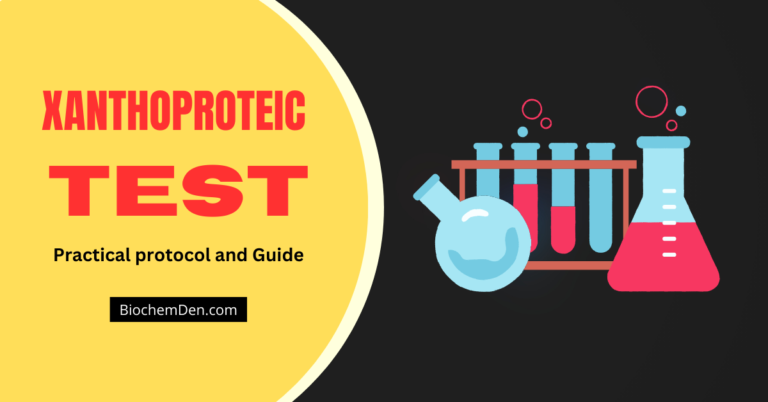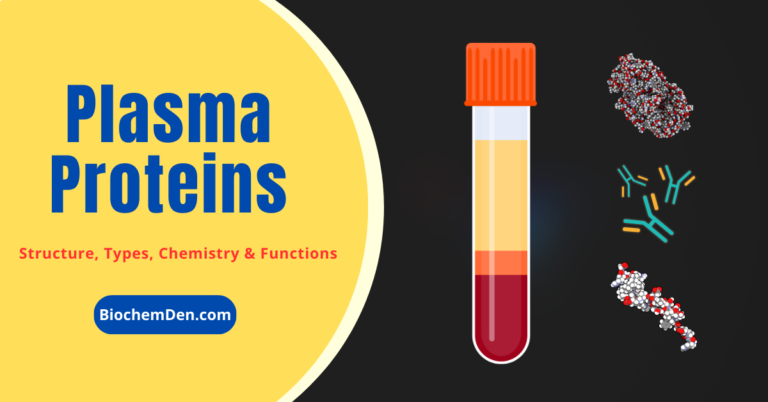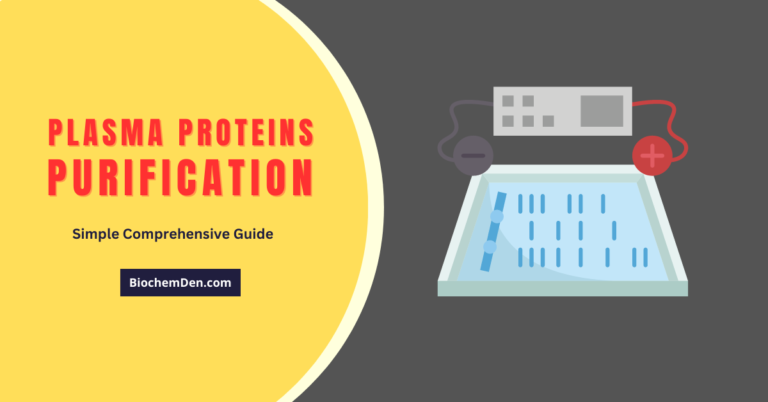Plasma protein deficiency, also known as hypoproteinemia, is a condition that occurs when there is a low level of protein in the blood.
Plasma proteins are essential for maintaining fluid balance, transporting hormones, medications, and other substances throughout the body, and helping fight off infection.
This article will discuss the symptoms, causes, diagnosis, and treatment of plasma protein deficiency.

What is a plasma protein deficiency?
Plasma protein deficiency is a condition characterized by low protein levels in the blood. Plasma, the liquid portion of blood, contains a variety of proteins, including albumin, globulins, and fibrinogen.
These proteins are essential for maintaining fluid balance, transporting hormones, medications, and other substances throughout the body, and helping fight off infection. When the level of plasma proteins in the blood is low, it can lead to a range of symptoms and complications.
Symptoms of Plasma Protein Deficiency
Plasma protein deficiency occurs when the body does not produce enough of the proteins found in plasma, the liquid component of blood. It can lead to a range of symptoms, as outlined below:
a. Oedema
Oedema refers to swelling in the legs, ankles, or feet due to fluid buildup in the tissues. It can occur when there is insufficient protein in the blood to keep fluids from leaking out of the blood vessels and into the surrounding tissues.
b. Fatigue
Fatigue is a common symptom of plasma protein deficiency. People with this condition may feel tired or weak, even after enough rest. It can be due to a lack of nutrients and energy transported to the body’s cells via the bloodstream.
c. Muscle wasting
Muscle wasting is another possible symptom of plasma protein deficiency. It refers to a loss of muscle mass and strength, which can occur when the body does not have enough protein to build and repair muscle tissue.
d. Loss of appetite
Some people with a plasma protein deficiency may experience a decreased desire to eat or difficulty eating. It can be due to a lack of appetite-stimulating hormones or the physical discomfort of abdominal swelling.
e. Delayed wound healing
Plasma proteins are important for wound healing, as they help transport nutrients and immune cells to the injury site. When these proteins are deficient, wound healing can be slowed or delayed.
f. Increased risk of infection
People with plasma protein deficiency may be more susceptible to infections, as the immune system may not function fully. It can be due to a lack of immunoglobulins, proteins that help fight off infections.
g. Respiratory distress
Plasma protein deficiency can cause respiratory distress, which refers to difficulty breathing or shortness of breath. It can occur if fluid builds up in the lungs or if the muscles involved in breathing are weakened due to muscle wasting.
h. abdominal swelling
Plasma protein deficiency can lead to swelling or distension of the abdomen due to fluid buildup. It can occur when there is insufficient protein in the blood to keep fluids from leaking out of the blood vessels and into the abdominal cavity.
i. Malnutrition
Inadequate intake of nutrients can occur due to decreased appetite or difficulty absorbing nutrients. It can lead to malnutrition, exacerbating the other symptoms of plasma protein deficiency.
It is important to note that the symptoms of plasma protein deficiency can vary depending on the condition’s underlying cause. Some people may experience only mild symptoms, while others may have more severe ones.
If you experience any of these symptoms, speaking with a doctor who can diagnose the condition and recommend appropriate treatment is important.
In addition to these symptoms, people with severe plasma protein deficiency may also experience additional complications, such as:
- Blood clots: Plasma proteins play a vital role in blood clotting, and a deficiency can increase the risk of abnormal blood clots forming in the body. It can lead to serious conditions such as deep vein thrombosis (DVT) or pulmonary embolism (PE).
- Organ failure: Severe plasma protein deficiency can affect the functioning of vital organs such as the liver, kidneys, and heart, leading to organ failure in some cases.
- Delayed growth and development: In infants and children, plasma protein deficiency can lead to delayed growth and development.
It is important to note that plasma protein deficiency can be a symptom of an underlying condition or disease, such as liver disease, kidney disease, or autoimmune disorders.
Therefore, it is crucial to identify the underlying cause of the deficiency to properly treat the condition and prevent further complications.
If you experience any of the symptoms mentioned above or have concerns about your plasma protein levels, speaking with your healthcare provider is important.
They may recommend blood tests or other diagnostic measures to determine the underlying cause of your symptoms and develop a personalized treatment plan.
Causes of Plasma Protein Deficiency
Plasma protein deficiency can be caused by a number of factors, including:
- Malnutrition: Inadequate protein intake and other nutrients can lead to a deficiency of plasma proteins.
- Liver disease: The liver is responsible for producing many of the plasma proteins, and damage to the liver can result in a deficiency.
- Kidney disease: The kidneys play a role in regulating the levels of plasma proteins in the body, and kidney disease can disrupt this balance.
- Autoimmune disorders: Conditions such as lupus and rheumatoid arthritis can cause the immune system to attack and damage the cells that produce plasma proteins.
- Genetic disorders: Some rare genetic disorders can interfere with the body’s ability to produce or utilize plasma proteins, leading to a deficiency.
- Medications: Certain medications, such as chemotherapy drugs and some antibiotics, can cause a temporary decrease in plasma protein levels.
- Chronic inflammation: Long-term inflammation can interfere with the production and function of plasma proteins, leading to a deficiency.
It is important to note that the specific cause of plasma protein deficiency can vary depending on the individual case.
In some cases, the cause may not be known or may be multifactorial. Working with a healthcare provider to identify the deficiency’s underlying cause is crucial to developing an effective treatment plan.
Diagnosis of Plasma Protein Deficiency
Diagnosing plasma protein deficiency can be a complex process, as it requires identifying the condition’s underlying cause.
Healthcare providers may use a combination of tests and examinations to diagnose the deficiency.
1. Medical History and Physical Exam
The healthcare provider will begin by taking a detailed medical history and performing a physical examination. They will ask questions about the patient’s symptoms, medical history, and any medications they are taking.
The physical exam may include checking for signs of swelling, fluid buildup, or other symptoms of plasma protein deficiency.
2. Blood tests
Blood tests are the primary diagnostic tool for plasma protein deficiency. The healthcare provider will order a comprehensive metabolic panel (CMP) to assess the levels of albumin and total protein in the blood.
They may also order additional tests, such as liver function or kidney function tests, to rule out underlying liver or kidney disease.
3. Imaging tests
In some cases, imaging tests may be necessary to assess the extent of fluid buildup or swelling. These tests may include a chest X-ray, ultrasound, or CT scan.
4. Specialized Tests
Suppose the underlying cause of the deficiency is unknown. In that case, the healthcare provider may order specialized tests to identify any autoimmune disorders or genetic conditions contributing to the deficiency. These tests may include a biopsy or genetic testing.
It is important to note that the diagnosis of plasma protein deficiency can be complicated, and the specific tests used may vary depending on the individual case. Working with a healthcare provider to identify the deficiency’s underlying cause is crucial to develop an effective treatment plan.
Treatment of Plasma Protein Deficiency
The treatment of plasma protein deficiency depends on the condition’s underlying cause. Treatment options may include:
1. Intravenous Immunoglobulin (IVIg) Therapy
IVIg therapy involves infusing the patient with a concentrated solution of immunoglobulin, a type of plasma protein. This therapy can help boost the patient’s immune system and improve their overall health.
IVIg therapy is typically administered on a regular basis, and the dosage and frequency may vary depending on the individual patient’s needs.
2. Plasma Infusion
Plasma infusion involves transfusing the patient with donor plasma containing the necessary plasma proteins. This therapy can help alleviate symptoms of plasma protein deficiency, but it is typically reserved for severe cases or emergencies.
3. Medications
Medications may be prescribed to help manage the symptoms of plasma protein deficiency. For example, diuretics may be prescribed to help reduce swelling and fluid buildup, while antibiotics may be prescribed to help prevent infections.
4. Nutritional Support
Proper nutrition is essential for individuals with plasma protein deficiencies. The healthcare provider may recommend a diet high in protein and nutrients to help support the patient’s overall health.
5. Treatment for Underlying Conditions
Treating the underlying condition may be necessary to treat the plasma protein deficiency if it is brought on by a condition like liver disease or an autoimmune disorder.
It is important to note that the specific treatment options may vary depending on the individual case. Working with a healthcare provider to identify the deficiency’s underlying cause is crucial to developing an effective treatment plan.
Regular monitoring and follow-up care may also be necessary to manage the condition and prevent complications.
Complications of Plasma Protein Deficiency
Plasma protein deficiency can lead to a range of complications, including:
1. Infections
People with a plasma protein deficiency are at an increased risk of developing infections, as plasma proteins play a critical role in fighting infections. The immune system may not function properly without adequate plasma proteins, making the person more susceptible to infections.
2. Chronic inflammation
Plasma proteins play a key role in regulating inflammation in the body. Chronic inflammation can occur without adequate plasma proteins, leading to a range of complications, including tissue damage and organ dysfunction.
3. Oedema
Oedema is a common complication of plasma protein deficiency, as plasma proteins help to regulate fluid balance in the body. Without enough plasma proteins, fluid can accumulate in the tissues, leading to swelling, particularly in the legs, ankles, and feet.
4. Malnutrition
Plasma proteins are important for transporting and absorbing nutrients in the body. Without adequate plasma proteins, malnutrition can occur, leading to various health problems, including weakness, fatigue, and delayed wound healing.
5. Increased Risk of Bleeding
Some plasma proteins, such as fibrinogen, are critical for blood clotting. Without enough plasma proteins, the risk of bleeding and bruising can increase.
6. Organ damage
In severe cases, plasma protein deficiency can lead to organ damage, particularly in the liver and kidneys, which are responsible for producing and filtering plasma proteins.
It is important to work with a healthcare provider to manage the symptoms of plasma protein deficiency and prevent complications. Regular monitoring and follow-up care may be necessary to manage the condition and prevent complications.
Frequently Asked Questions
Can plasma protein deficiency be prevented?
In many cases, plasma protein deficiency can be prevented by eating a healthy, balanced diet with enough protein.
How is plasma protein deficiency diagnosed?
Plasma protein deficiency is diagnosed through various tests, including blood tests, urine tests, and imaging tests.
What is the treatment for plasma protein deficiency?
The treatment for plasma protein deficiency depends on the condition’s underlying cause but may include dietary changes, medications, or plasma transfusion.
What are the complications of plasma protein deficiency?
Complications of plasma protein deficiency can include malnutrition, oedema, infections, delayed wound healing, respiratory distress, and organ failure.
Is plasma protein deficiency a rare condition?
Plasma protein deficiency is not common, but it can occur in people with certain underlying medical conditions.
Conclusion
Plasma protein deficiency is a condition that occurs when there is a low level of protein in the blood. It can lead to various symptoms and complications, including oedema, malnutrition, and respiratory distress.
If you experience symptoms of plasma protein deficiency, it is important to speak with a doctor who can diagnose the condition and recommend appropriate treatment.
People with plasma protein deficiency can manage their condition and prevent complications by making dietary changes, taking medications, or receiving a plasma transfusion.
Discover more from Biochemistry Den
Subscribe to get the latest posts sent to your email.






